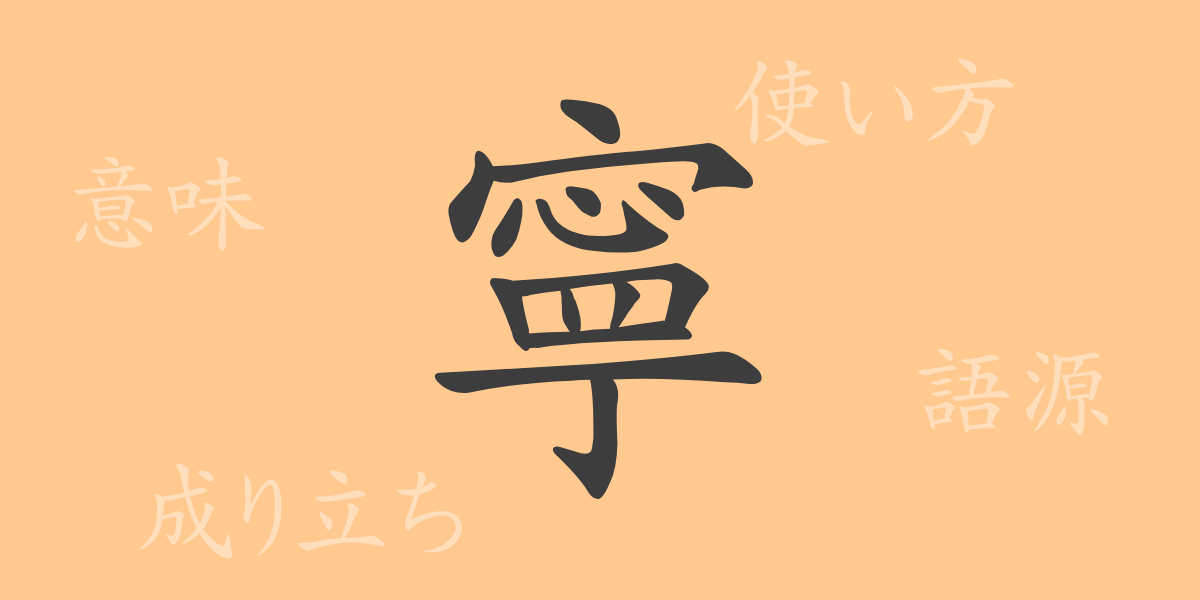Each character in the Japanese language reflects the rich history and culture of the nation. Among these, the commonly used Kanji characters are essential for smooth communication and conveying deep emotions and complex concepts. This article focuses on the Kanji ‘寧 (ネイ)’, exploring its origins, meanings, usage, as well as phrases and proverbs that feature it, delving into the beautiful world of this elegant character.
Origins of ‘寧 (ネイ)’
The Kanji ‘寧’ can trace its origins back to ancient Chinese oracle bone script. Initially derived from a pictograph representing a house, it later evolved to embody meanings of tranquility and peace. This character is formed from the radical ‘宀 (べんがし)’ representing a roof and ‘心 (こころ)’ symbolizing the heart, illustrating the concept of ‘a heart resting peacefully under a roof.’
Meaning and Usage of ‘寧 (ネイ)’
‘寧’ carries meanings like ‘rather’, ‘preferably’, ‘peaceful’, and ‘tranquil’. It is used to express preference among choices, and often appears in its negative form. ‘寧ろ’ translates to ‘rather’ or ‘preferably’, emphasizing comparison or priority in choice.
Readings, Stroke Count, and Radical of ‘寧 (ネイ)’
Let’s explore how ‘寧’ is read and its features in the Japanese language.
- Readings: On’yomi is ‘ネイ’, Kun’yomi is ‘むしろ’
- Stroke Count: ‘寧’ consists of 14 strokes.
- Radical: The radical is ‘宀 (うかんむり)’.
Phrases, Idioms, and Proverbs Using ‘寧 (ネイ)’
The Kanji ‘寧’ is found in numerous phrases, idioms, and proverbs, reflecting its deep meanings and cultural background. For instance, the idiom ‘寧静’ means ‘quiet and calm’, used to express peace of mind. The phrase ‘寧ろ死を選ぶ’ implies a strong resolution to choose death over certain circumstances, indicating a preference for death as a better alternative.
Conclusion on ‘寧 (ネイ)’
The Kanji ‘寧’ symbolizes tranquility and peace, both in its structure and meaning. In Japanese, it plays a crucial role in expressing more complex emotions and situations through idioms and phrases. This article hopefully has deepened your understanding of the rich history and cultural significance of ‘寧’, helping you to rediscover the profound beauty of the Japanese language.

























